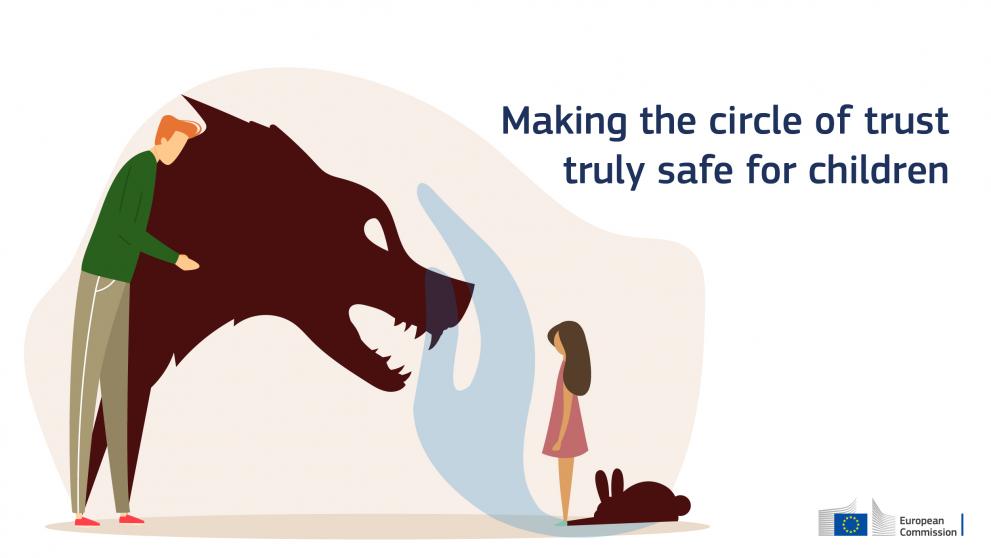
This year on the European Day on the Protection of Children against Sexual Abuse and Sexual Exploitation we take time to reflect on how to make the circle of trust truly safe for children. Combating child sexual abuse and exploitation is one of the top priorities of the EU. It is imperative that society does not turn away from this issue – we have to take steps to prevent child sexual abuse in the first place, detect it and identify and rescue the victims when it does happen, prosecute the perpetrators and support survivors of these crimes.
Preventing these crimes from happening in the first place is the best way to protect children. Effective prevention has to involve every level of society: from individuals to the state. Children and adults alike need to be better informed and equipped against this crime. However, we also need to step up the work with people who have offended or fear they may offend.
The Commission has announced a number of initiatives to improve the fight against child sexual abuse, described in the EU strategy for a more effective fight against child sexual abuse.
The strategy includes in particular a number of initiatives on prevention:
- To ensure that EU legislation is up-to-date and effective, we are working on an evaluation of the Child Sexual Abuse Directive, which includes a number of articles on prevention.
- Work is underway to develop a prevention network for practitioners and researchers. The network will become a platform for exchange of expertise and experiences between researchers and practitioners.
- Funding is necessary to develop effective ways of preventing child sexual abuse (CSA). The Commission will soon announce a call for projects to improve prevention, victim support and tech solutions to fight child sexual abuse.
- Finally, we are working towards the possible establishment of an EU Centre to prevent and combat child sexual abuse. Supporting EU efforts on prevention would be one of key roles of the Centre.
Online platforms also have an important role to play in both prevention of child sexual abuse and protection, ensuring that children are safe online. Children may be too young to understand what is happening to them, and be unable to seek help, especially as abusers take steps to prevent their victims from telling anyone. The number of reports of child sexual abuse has grown exponentially in recent years. The COVID-19 pandemic has further worsened the situation, as it has confined offenders to their homes with more opportunity to find and share child sexual abuse material and seek victims for grooming – luring or threatening children into sharing compromising images or meeting offline. Similarly, children are spending an increased amount of time online, sometimes with little possibility of supervision. Offenders often record the abuse and share it with others, in exchange for other images and videos. Providers of online services – social media, chat services – are therefore often the only window into the abyss. A new survey conducted by ECPAT shows that this issue is a key priority for society: 73% of citizens feel that children are not safe online, and that detection of child sexual abuse online is as important or even more important than people’s personal privacy online (76% of respondents).
To address the growing challenge, the Commission is working on a legislative proposal that will make sure abuse does not remain undetected. It will clearly define the responsibilities of online service providers, and ensure that the safety of children is given the appropriate priority. The Commission is also planning to strengthen support for survivors of child sexual abuse. A key issue is the removal of images and videos depicting their abuse; survivors should not be left to watch the continued circulation of evidence of their suffering.
The Commission will also continue its engagement beyond the EU, with the Council of Europe and with its international partners, notably the WePROTECT Global Alliance to end child sexual abuse online. We all have to work together to make the circle of trust truly safe for children.
Related links:
Details
- Publication date
- 18 November 2021
- Author
- Directorate-General for Migration and Home Affairs
